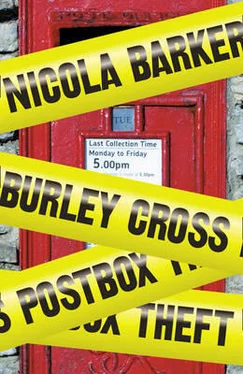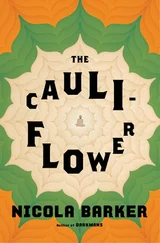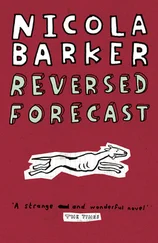I would never have coped with the life you were destined for. I would have smothered your hope, your promise and your desire. If you had stuck with me (and my numerous maladies), you wouldn’t have married your ex-wife, Patricia, and she couldn’t have borne you your two handsome sons. You wouldn’t have taken on the greatest role of your life: to be a father.
The very thought makes me shudder.
And then, of course, there was always Rhona. She’d sacrificed so much for me, and with such a huge sacrifice comes a strong sense of obligation. I was obliged to her, Donovan (I think I always will be). She gave up her vocation in the Church to take care of me after Mother passed. She abandoned her calling. It would have been an unforgivable crime to desert her just when her faith — her trust in God — was starting to falter.
But let’s not dwell on these things! The past is the past. It is gone and forgotten. Although (to hark back, for just a brief second) it would be difficult for you to conceive how much comfort I took over the long years that followed — and still take, every day — in your manifold achievements as a UN negotiator in West Africa.
You have moved mountains, Donovan. You have altered borders. You have shifted the world’s emotional geography. You have shaped lives. You have saved lives. You have had a hand in making history.
How could I — one weak and waffling female — have dared to stand in the way of all that?!
If Glenys’s temper was a dam wall — threatening, at every second, to collapse or implode — your will to make peace, to intercede, to unify, was a force every bit as compelling and as powerful.
There’s a lesson in that, surely? And a rich irony. You have become one of the world’s most admired and respected Conflict Resolution specialists, because the most important conflict in your own life could never be resolved. It was unsolvable. Glenys’s implacability was the cruel spur that drove you. It was both your inspiration and your goad.
She was (in Rhona’s words) a silly old trout (and sometimes worse!). But oh, how I loved her, Donovan, for all her many faults! I loved Glenys. I don’t even mind admitting it, now. I loved her because she was the opposite of you, I loved her because to love her — the mother, your opposite — was as close as I could get to loving the son. I made loving her my life’s work (my trial, my test, my passion), and I feel such a gaping hole inside of me — a ludicrously huge void — now that she has gone.
Of course I don’t suppose for a moment that she ever loved me back! Glenys tolerated me, at best. It’s not that she was entirely cold. There were signs of warmth, on occasion (not heat, no — just the dull, red coals that glimmer in a cooling grate at the end of a long, inhospitable evening).
She could be funny — often unintentionally. I wouldn’t call her ‘unkind’, not as such; there was kindness there (microscopic little drops of it). It just wasn’t very well distributed. It was like those tiny scraps of burned newspaper that fly out of a bonfire — delicate tornadoes — on a gusty autumn afternoon.
She certainly cared for her animals. In their case you might almost say she cared too much. Her love could be ruinous (not to mention her over-feeding!). She killed three dalmatians ‘with tenderness’ over the past twelve years. When the last one died — Faith, a fine, good-natured, liver-coloured bitch, only five years old — it took three men to carry her out (rolled up in two blankets). They could barely squeeze her through the garden gate.
But enough of all this! I’m straying, once again, from the real purpose of my letter (I can hardly bear to engage with it, the subject is so painful — to both of us, I’m sure), so here goes… Deep breath…
Please try and forgive us, Donovan, for all the crimes you feel we have committed against you. If they were committed, then they were completely unintentional. You are one of our oldest and our dearest friends — a brother to us both. Let us start afresh. Let us put aside all the misunderstandings and the rancour and the pettiness (it can be done, it is possible, all it takes is a small act of will)! Let us try and return to the way things once were! The good old times!
If only you could be persuaded to believe me when I tell you that Rhona and I had no idea — not the slightest inkling — of the many arrangements that Glenys had set in place prior to her death. Glenys didn’t tell us about her burial plans, I swear (not so much as a whisper)! When I wrote to you (on the sad day she died), I had no notion (absolutely none!) of the strange events that were soon to unfold.
She had never (never!) discussed the details of her will with us (we didn’t even think there was a will. We had no earthly reason to expect that there might be. You were her natural heir, her only child).
After she died we did not — as you suggested in your last communication — ‘ransack the cottage searching for valuables’ or ‘take up partial residence’ there (it frightens me to think who could have fed you these untruths, because I know — I’m certain — that you couldn’t possibly have come up with them all by yourself).
I’ve racked my brains and I still can’t settle on any one individual in the village who might have anything positive to gain by stirring up such cruel rumours against us (although Rhona, alas, is not of my bent). In fact I’ve become profoundly depressed about it all. I’m currently on a course of sleeping medication and Rhona has lost over two stone in weight (although her doctor says this is no bad thing: every cloud has a silver lining, I suppose!).
After thirty years in Burley Cross I’ve started to find the atmosphere here stifling and claustrophobic. I’m constantly on edge, staring at all the kind people I’ve known for years with nagging feelings of suspicion and disquiet.
It’s been horrible.
It pains me to have to go into all the details once again, but just so that there can be no further confusion on the issue, since Rhona discovered poor Glenys’s body on that awful day, I can assure you — hand on my heart — that we have crossed the threshold into Camberwell Cottage on only two occasions, in total (even the estate agent went in alone).
The first was to select a suitable dress for Glenys to wear in her casket (when we found her, as I mentioned previously, she was in her nightdress), and to clean out the perishable contents of her fridge (none of which we kept — all of which we disposed of).
The second was to facilitate the delivery of a commode (the driver refused to take it back, although he did kindly agree to dispose of the old one). I can only guess that the ‘disinterested party’ your lawyer referred to when he called was a witness to this transaction and leapt to all the wrong conclusions.
For the record, the new commode (which was ordered — and paid for — by me) currently sits, still boxed up, in Glenys’s hallway (even if Rhona or I had found it a desirable artefact, neither of us — thank God — have any need of it, as yet!).
In regard to ‘prettying the place up for ourselves’ (and it cuts me to the quick to even write down those words) I can tell you that we have continued to trim the grass and prune the roses. This was something we had always done for Glenys, and something we have continued to do — as an act of good will — for you.
And why? Because the house is yours, Donovan. It was always yours. I thought we made that plain when this thorny issue first arose. It never entered our minds that it should be otherwise. Your extraordinary theories about Glenys being ‘under our spell’, ‘subject to our wiles’, ‘frightened, desperate and vulnerable’ (and countless other bizarre notions which bear no relation to the truth), I can only imagine were uttered in the dark haze of grief.
Читать дальше
Конец ознакомительного отрывка
Купить книгу












